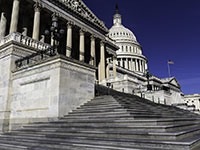On February 24, 2015, the SEC announced that it had reached an agreement with Goodyear Tire & Rubber Co. (“Goodyear”) for Goodyear to disgorge more than $16 million to settle FCPA charges stemming from its Kenyan and Angolan subsidiaries. This settlement is notable because it focuses on bribery involving private companies as opposed to official corruption, which is typically prosecuted by the SEC. While the FCPA’s anti-bribery provisions apply only to improper payments to foreign officials, the SEC charged Goodyear with violations of the FCPA’s books and records provisions, which have no such requirement and instead require a company to keep records that “accurately and fairly reflect the transactions and dispositions of the assets of the issuer” and to “devise and maintain a system of internal accounting controls” sufficient to ensure the integrity of the company’s financial records. This use of the books and records provisions is important because it signals the SEC’s intent and ability to use the FCPA to bring broad, far-reaching enforcement cases that have the potential to ensnare any public company.
Goodyear Rolls Out $16 M Settlement With SEC, Putting Brakes on FCPA Charges











